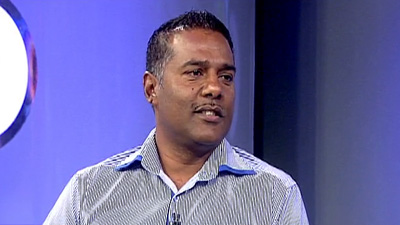Former South African Football Association (SAFA) Instructor Sudesh Singh believes local football could still be saved.
Singh’s remarks come as criticism continue over the poor state of football in South Africa.
SAFA is blamed for failure to improve the game.
The football development guru says the association was in fact once headed in the right direction. According to Singh, the local game could have made major advancements had it carried on the path it once was on.
But when was that era?
“I think that very interesting period, because on one side, Ted Dumitru had put together … I think that document was called … it was riding also on how the government was changing … it was called Football or Coaching Redevelopment Programme, the RDP, you know. It was about designing a philosophy, having a South African content in the curriculum. So, we were already at an advanced level,” says Singh.
“Because obviously Ted Dumitru and his coaches had started the Chibuku Academy at Orlando in the early 90s. So, they had that expertise. They had started the Transet School of Excellence, whereby there were the Sam Mbathas, Cavin Johnson, Thabo Dladla. So, it was a proven a concept. It wasn’t just theory, and we all know the success of that Transnet School of Excellence, whereby over 100 players went on to play professional and internationally. The Steven Pienaars, Old-John Mabizela; we could go on and on and mention the names, you know.”
But according to Singh, all is not lost. He says as long as the country retraces its steps – local football can still be saved.
In the video below, SABC News’ Sipho Kekana chats to Singh:
Singh says had SA focused on developing its own football playing philosophy, the country would not be struggling to make an impact on the international scene as is currently the case.
But what is a South African National Philosophy and its attributes?
“For me, the SA Football Philosophy is based on three legs – technique, mobility and creativity. It is evidenced by short pass combinations, continuous movement – physical and psychological-, and a lot of improvisation. Players are always looking for new ways to express themselves in the game. It is very offensive, in nature. Defending is a ‘default’ moment. You can go on and on – self-expression, exuberance, team cohesion, individual arrogance, technical, fun, carnival, intriguing, etc,” says University of Pretoria FC Head Coach, Zipho Dlangalala.
Football Development Coach Omar Davids says: “A playing philosophy is a system of knowledge and beliefs used to define a particular way of playing football. Our playing philosophy is possession-based football. It is characterised by the control of the play from keeper to striker, imposing a unique style on the game.
There’s a predisposition to short passing, creativity and improvisation. It can be expressed in a variety of tactical applications from very organised defensive structures to individuality and fluid individuality. Opponents’ ability to play long balls is limited by not allowing time and space. The dynamic nature allows for a fluid transition from defence to attack. All defenders are able to attack after regaining possession through a compact defensive organisation.
Due to sustained movement mobility, players use variations of pace and intensity to outwit opponents. There are optimal benefits for the natural agility, speed, endurance and explosive power of our players. The mentality to avoid fouls, winning, determination, resilience and generation of satisfaction to dominate opponents underpins our playing philosophy.”
Singh says while he doesn’t disagree with the descriptions above, what is important to note at the moment is that the philosophy does not exist.
“We don’t currently have one that’s fully implemented at all levels of the game and that is what we need to start correcting. Case studies prove that countries, who achieve success internationally, all have a National Playing Philosophy that’s specific and relevant to their football culture and environment.
This National Playing Philosophy will then define how one designs a coherent technical policy that provides a framework, guidance on how a national association should structure, organise and operate on all technical matters, like how national coaches are selected; the immediate, medium and long-term vision and performance objectives of the association; the criteria to select players for the various national teams, etc.”
Davids agree with Singh that local football could still be salvaged. He says South African players have unique attributes that are found among the world’s greatest.
“There exist unique traits of creativity and improvisation associated with disguise and tactical surprise. Players are able to function in a diversified range of positions due to their mobility and capacity to understand different roles and positions,” Davids explains.
“The physical capacities of reaction speed, explosiveness, speed and endurance allows for distinction somatic factors (specifically built of footballers) to complement our play dynamics. Our players have inherited a strong dedication to the sport despite adversities of oppression and marginalisation. Our players are resilient, creative and artistic by nature. Most if not all of these characteristics have been exhibited by the greats in world football; Maradona, Platini, Cruyff, Pele, Puskas, Eusebio, Zidane, Ronaldo, Ronaldinho, Messi, Xavi, Iniesta, Kaka, etc,” he says.






